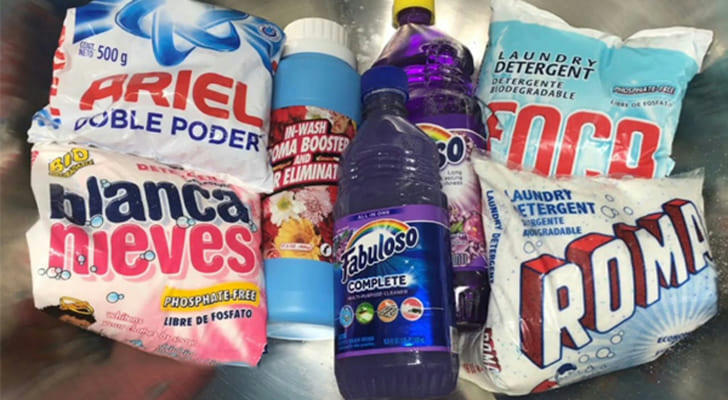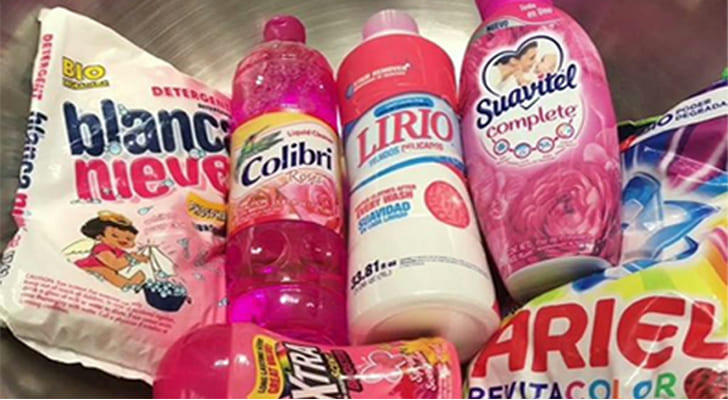Supporting Families in Need: The Salvation Army Provides Free Laundry Detergent
In a world where many families are grappling with the rising cost of living, The Salvation Army has stepped up to provide essential support. One of their impactful initiatives involves distributing free laundry detergent to low-income families, helping to alleviate the financial burden of household expenses. This program not only supports hygiene but also promotes dignity and quality of life for those facing economic hardships.

The Importance of Laundry Detergent
Laundry detergent might seem like a trivial item, but for families on a tight budget, it is a luxury they often cannot afford. According to recent surveys, many low-income households struggle to maintain basic hygiene due to the costs associated with essential household supplies. The Salvation Army's initiative is a response to this pressing need, ensuring that families can keep their clothes clean without the worry of incurring additional costs.
Real-Life Impact: A Case Study
Consider the story of the Garcia family, a single-income household living in a modest apartment. With three children and the rising costs of rent and groceries, the family often found it difficult to afford necessary items like laundry detergent. They resorted to using water alone to wash their clothes, leading to unhygienic conditions and embarrassment for the children at school.
When the Garcias learned about The Salvation Army’s program, they were able to receive free laundry detergent monthly. This simple act allowed them to not only maintain cleanliness but also fostered a sense of normalcy and pride. The children felt more confident in their appearance, and the family could redirect their limited resources toward other essential needs, such as food and school supplies.
How to Obtain Free Laundry Detergent and Shampoo
The Salvation Army operates through various community centers and local churches, providing services tailored to the needs of the population they serve. Families can access free laundry detergent through food pantries and community outreach programs, ensuring that assistance reaches those who need it most.
Accessing Laundry Detergent through Food Pantries
1.Locate a Food Pantry: The Salvation Army operates food pantries across the country. You can find a local food pantry by visiting the official Salvation Army website. Use the "Find Your Local Salvation Army" tool to identify nearby locations.
2.Check Availability: Many food pantries offer essential household items, including laundry detergent. It's a good idea to call ahead or visit the pantry's website to check if laundry detergent is currently available, as supplies may vary.
3.Visit the Pantry: Once you confirm availability, visit the pantry during its operating hours. When you arrive, you may need to fill out a brief intake form to assess your eligibility for assistance. This helps the organization understand your needs and allocate resources effectively.
Participating in Community Outreach Programs
1.Inquire About Outreach Programs: The Salvation Army often runs outreach programs that provide additional resources to families in need. These programs might include events or workshops where household items, including laundry detergent, are distributed.
2.Stay Updated on Events: Follow your local Salvation Army branch on social media or subscribe to their newsletter for updates on special events. Many branches host community days or outreach events where free products are distributed, along with other assistance.
3.Engage with Local Churches: Since The Salvation Army partners with local churches, inquire at nearby places of worship. They may have additional resources or programs to help families access essential items.
Application Requirements
To ensure essential supplies are provided to those in need, The Salvation Army generally requires applicants to submit certain documents. These typically include:
Proof of Income: Applicants might need to submit documents demonstrating financial hardship, such as government aid paperwork or proof of unemployment for families currently without income.
Identification and Residency Verification: Additional requirements often entail providing identification (like a driver's license or state ID) and proof of residency to establish eligibility for assistance.
Families that meet these criteria can easily contact their local Salvation Army office to learn more about how to access free laundry detergent and shampoo.
Tips for Families Seeking Assistance
1.Locate Your Local Salvation Army: Start by visiting The Salvation Army's official website to find a local branch. Many areas have specific programs tailored to meet community needs.
2.Reach Out Early: Many programs operate on a first-come, first-served basis. Contact your local office to inquire about availability and requirements.
3.Engage with Community Resources: In addition to laundry detergent, The Salvation Army often provides other necessities, such as food assistance and clothing. Make sure to ask about other available resources.
4.Spread the Word: If you know others in your community who might benefit from these services, share the information. Community outreach can significantly increase participation and awareness of these programs.
5.Volunteer or Donate: If you have the means, consider volunteering your time or donating supplies. Many local branches welcome help to sustain their programs, including the distribution of laundry detergent.
The Broader Impact of the Program
The distribution of laundry detergent is part of a larger commitment by The Salvation Army to address the multifaceted issues facing low-income families. By focusing on hygiene and health, the organization recognizes that clean clothes contribute to better mental health, improved self-esteem, and increased opportunities for success, particularly for children in school.

Conclusion
The Salvation Army's initiative to provide free laundry detergent is a testament to their ongoing commitment to supporting families in need. By addressing the basic requirements of daily life, they help alleviate some of the financial pressures many face. The stories of families like the Garcias highlight the importance of these programs and the tangible difference they can make.
